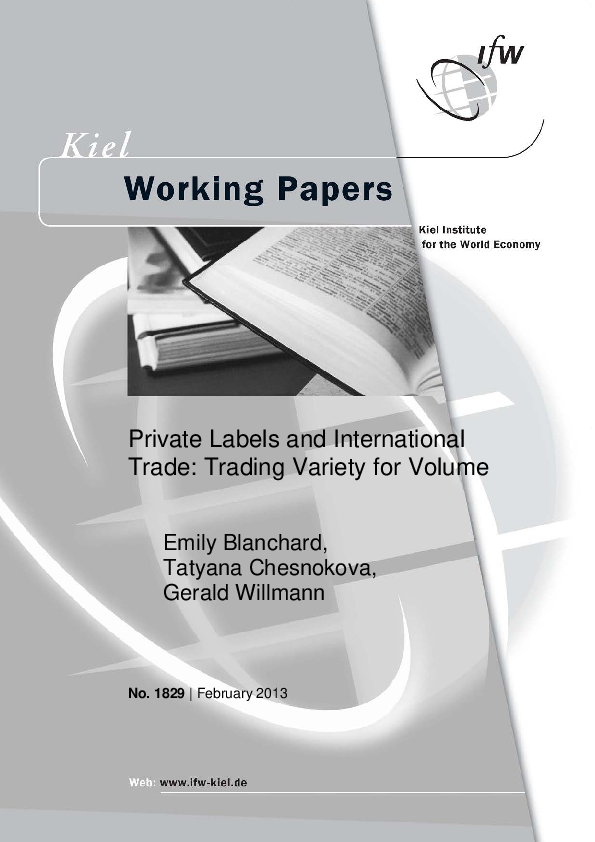Working Paper
Private Labels and International Trade: Trading Variety for Volume
Authors
Publication Date
JEL Classification
Key Words
This paper explores the role of pooled-producer, e.g. private label, trade intermediation in shaping the range and diversity of exports. Direct sales maintain a firm's unique product characteristics (`brand equity'), whereas trade through an intermediary can take two forms — either a wholesaling arrangement that (also) maintains the exporter's unique brand but imposes a higher marginal cost (via double marginalization), or a `private label' contract under which the firm's product is pooled with other firms' output and re-sold under a new private label brand created by the intermediary. This paper focuses on the latter, and shows that the availability of the private label option results in greater total export volumes and lower average prices for consumers, but fewer independent varieties available in equilibrium. Welfare implications are mixed: consumers trade variety for volume, firms face greater competition from the new pooled-products, and intermediaries capture much of the gains from trade.







